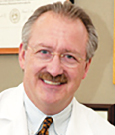HPV-associated oropharyngeal cancer is becoming more and more prevalent. This is a ‘different beast’—distinct from the squamous cell carcinomas of the tonsil and tongue that arise from standard risk factors of tobacco and alcohol. Patients without a smoking history have an 85% to 90% cure rate, which seems to be independent of tumor T stage. With cure rates this high, we think we may be overtreating some patients; this is important because the side effects are related to the intensity of treatment,” said Paul M. Busse, MD, PhD, Clinical Director of Radiation Oncology at Massachusetts General Hospital, Boston, who was not involved in this study.
“Many of these patients are in their 40s and 50s, otherwise healthy, and will live a long time. If we can treat them with less-intensive chemoradiation while maintaining high cure rates, it will be a win-win situation,” Dr. Busse continued.
Devil Is in the Details
But the devil is in the details. “There are several possible ways to deintensify treatment; however, no one knows the best way to achieve this. Less toxicity is in the eye of the beholder. Experts have advocated for a reduction in the dose of radiation, eliminating or reducing chemotherapy or doing surgery with or without adjuvant therapy. We don’t want to lose our ability to cure people by deintensifying therapy,” he said.
According to Dr. Busse, the best regimen will be identified by careful examination of well-designed phase II studies that have sufficient follow-up to characterize side effects.
“The study by Chera and colleagues is well done, systematic, and a step in the right direction. They were able to show a good result. Longer follow-up will be informative,” Dr. Busse commented. ■
Disclosure: Dr. Busse reported no potential conflicts of interest.


